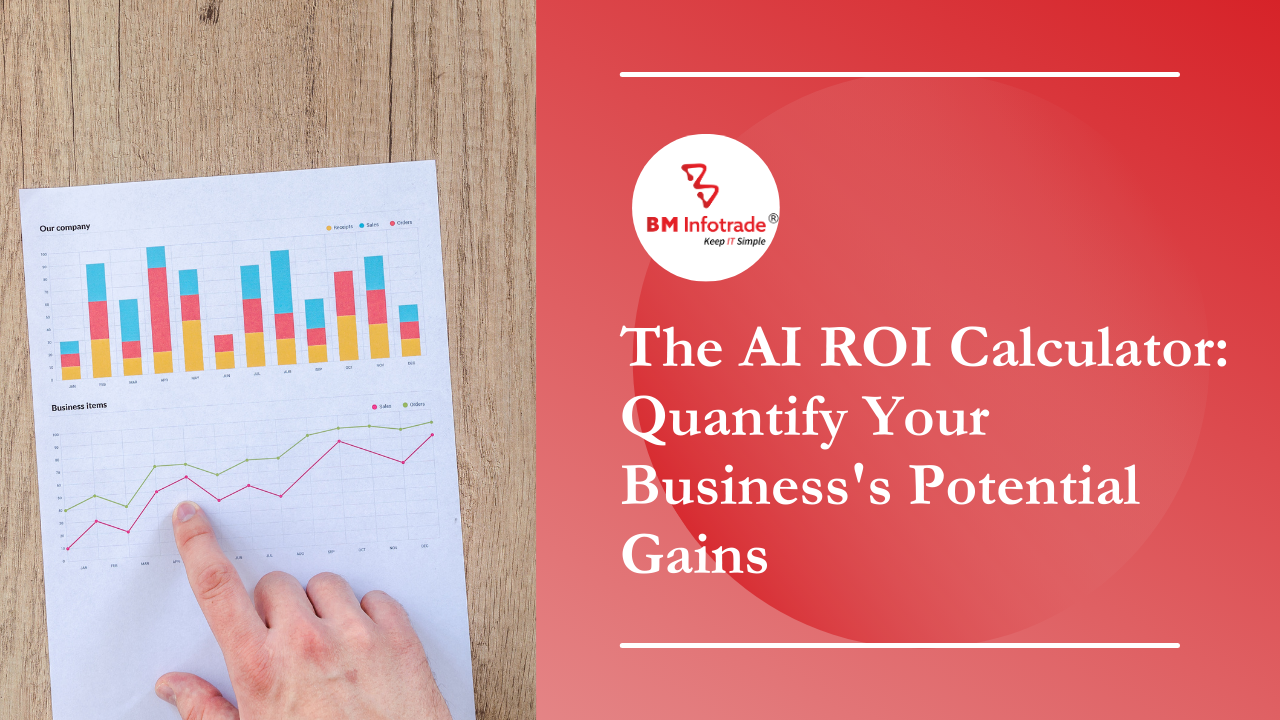How AI is Transforming Data Analytics for Better Decision-Making
Nowadays, the ability to make informed decisions quickly and accurately is becoming more important than ever before in this data-centric world. Businesses have benefited from conventional data analytics, but the introduction of artificial intelligence has completely overhauled data analysis.

How AI is Transforming Data Analytics for Better Decision-Making
Table of Contents
Nowadays, the ability to make informed decisions quickly and accurately is becoming more important than ever before in this data-centric world. Businesses have benefited from conventional data analytics, but the introduction of artificial intelligence has completely overhauled data analysis. This is because AI is transforming how we collect, analyze, and interpret data resulting in more knowledgeable, faster, and accurate decision-making processes. The blog has explored ways in which AI is revolutionizing data analytics and its profound effects on decision-making across different sectors.
Data Analytics Evolution
From manual number crunching and basic statistical methods, data analytics has gone a long way. Human beings spend too much time collecting, cleaning, and analyzing pieces of information as it was traditionally done by experts who had to gather the appropriate datasets in most cases. However, these methods were limited by human capabilities leading to errors.
The amount of information available for analysis has grown exponentially with large databases coming up every day calling for elaborate tools and techniques to handle modern complex data sets. Henceforth comes AI that revolutionizes one’s approach towards big data analysis.
Automating Data Processing
Automation through AI stands out as a major transformation of data analytics due to the sheer volume of statistics that it handles. On their part, AI algorithms can collect vast amounts of raw numbers quickly and then clean them before analyzing them within seconds while humans would take hours or even days doing the same thing just as an example among many other scenarios where such an efficiency would help reduce analytical lead times.
For instance, Artificial Intelligence can scan huge datasets faster without missing any patterns, correlations or outliers like a normal human analyst would do if left alone. In comparison with full automation, at least businesses are now able to dedicate more time to interpretation rather than having overwhelmed first steps when dealing with large blocks of unsorted figures.
Advanced Predictive Analytics
One application where AI excels is predictive analytics which entails predicting future outcomes using past data. Predictive models in AI, specifically those that are based on machine learning principles, progressively get better over their lifetime as more information is included in the modelling process. In this regard, data-driven predictions become more accurate the longer they have been generated by AI.
In finance, for example, predictive analytics powered by AI could be applied to foretell market trends and highlight some risks as well as make investment decisions with much certainty. In healthcare, it can predict patient outcomes and assist in early diagnosis and planning personalized treatment options.
Real-Time Data Analysis
AI is also making a major impact when it comes to real-time data analysis. Most businesses operate at high speeds that do not provide room for many delays when making crucial decisions. Real-time data processing via Artificial Intelligence allows companies to respond quickly by providing them with real-time updates.
For instance, in the retail industry, artificial intelligence can track customer behavior at an instant rate thereby enabling dynamic pricing or personal recommendations. Manufacturing firms can employ artificial intelligence systems which monitor production lines continuously so that they highlight future issues before they cause breakdowns.
Effects on Decision-Making
Increased Accuracy and Precision
This leads to less error margins during decision making hence leading to more accurate and precise judgments made by people with the help of AI’s computational algorithms; thus, making sure that companies base their decisions on correctly processed information every time though small mistakes might go unnoticed within such a sector as health care or financial services industries where even tiny errors might result in serious consequences.
Swiftness and Efficiency
Artificial intelligence can significantly hasten the decision-making process. What used to take days or weeks of analysis can now be accomplished in just minutes or even seconds. This faster speed permits businesses to forge ahead of competition and respond faster to opportunities or challenges.
Personalization and Customization
AI’s ability to handle massive amounts of data enables more personalization and customization than was previously conceivable. In marketing, AI can analyze customer data for personalized campaigns that speak directly to each consumer’s needs. For instance, in medicine, AI could be employed to design tailored treatment plans based on an individual patient’s medical history and genetic makeup.
Industries Gaining from AI-Powered Data Analytics
Healthcare
AI is revolutionizing healthcare by providing more accurate diagnoses, personalized treatment regimens, and improved patient outcomes. For example, medical images analyzed by AI can identify early manifestations of diseases like cancer thus enabling an earlier intervention as well as better prognosis.
Finance
In the finance industry things such as fraud detection, risk management, and algorithmic trading among others apply artificial intelligence technologies can now process real-time massive financial data detecting patterns and abnormal activities indicating frauds or areas with potentially high returns on investments.
Retail
Retailing has embraced the analytical power of AI not only for analyzing customer behavior but also for optimizing inventories and customizing sales transactions. AI-supported market analysis may enable traders to forecast demand well enough while managing supply chains based on specific customers’ requirements through marketing tailoring schemes.
Manufacturing
Manufacturers are increasingly using artificial intelligence (AI) systems to optimize their production processes thereby minimizing downtime plus enhancing quality control. Such is because AI can examine sensor data from a conveyor belt to predict when a machine is likely to break down and, in so doing, allow proactive maintenance that cuts the risk of costly breakdowns.
Challenges and Considerations
Data Privacy and Security
As AI continues to advance, concerns about data privacy and security are becoming more prominent. The analysis of big data using AI often involves sensitive information, which raises questions as to how this data is protected or who has access to it.
Ethical Considerations
Furthermore, ethical issues come into play when certain AI-driven decisions are made; especially in fields like healthcare and finance where these actions directly impact individuals’ lives. Ensuring that AI systems are transparent, fair, and free from bias is essential.
Need for Skilled Workforce
Integrating AI into data analytics requires a workforce skilled in both AI technologies and data analysis. Continuous training and development will be necessary because as AI advances, so do professionals need skillful use of it in their work.
The Future of AI in Data Analytics
The future looks great for artificial intelligence (AI) regarding its application in the field of data analytics. As artificial intelligence technologies continue evolving at an unprecedented pace there will be increasingly sophisticated tools available for examining diverse datasets and making informed choices. Emerging trends such as ‘deep learning’ together with automation supported by artificial intelligent systems can further revolutionize the area of data analytics towards making businesses become more strategic decision-makers than ever before.
AI is transforming data analytics and decision-making across sectors. It enables businesses to make decisions more quickly, and accurately with its automated data processing, advanced predictive analytics, and real-time data analysis. The evolution of AI will only accelerate its influence on data-driven decision making which in turn will make it a vital tool for business survival amidst the current changing world.





![Cloud Licensing and Compliance Made Easy [All-in-One Bundle]](https://bminfotrade.com/assets/upload/blog/21851766642757.png)


Anshul Goyal
Group BDM at B M Infotrade | 11+ years Experience | Business Consultancy | Providing solutions in Cyber Security, Data Analytics, Cloud Computing, Digitization, Data and AI | IT Sales Leader